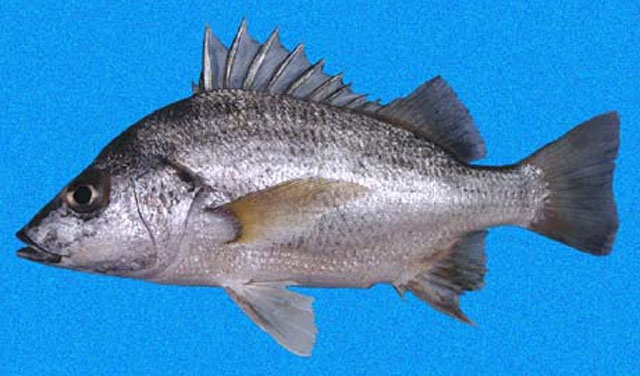| Haemulidae (Grunts), subfamily: Haemulinae |
| 37 cm TL (male/unsexed) |
|
benthopelagic; brackish; marine; depth range 1 - 30 m |
| Eastern Pacific: Mexico to Ecuador. |
|
Body oblong, moderately compressed, and somewhat deep (depth contained 2.5 to 2.7 times in standard length); mouth small and terminal, its posterior end located at the same level as the anterior rim of the eye; first gill arch with 18 to 23 gill rakers; dorsal fin deeply notched, with 12 to 14 spines and 13 to 14 soft rays (XII-IV, 13-14); dorsal and anal fins with a scaly sheath, the soft portions with international scales; second anal spine much stronger and longer than third; back dark brown or gray; belly silvery; back and flanks with 4 or 5 indistinct, dark, transverse bars (sometimes absent); operculum sometimes with a small, dark spot (Ref. 55763). |
| Found near the littoral zone of coastal waters (Ref. 9114). Penetrates estuaries (Ref. 9114). Marketed fresh (Ref. 9114). Depth range assumed (RF). |
|
Least Concern (LC); Date assessed: 25 May 2007 Ref. (130435)
|
| harmless |
Source and more info: www.fishbase.org. For personal, classroom, and other internal use only. Not for publication.
